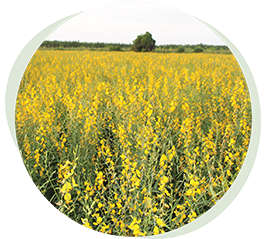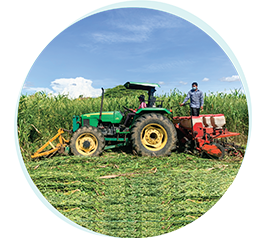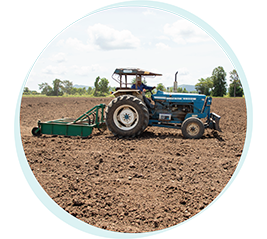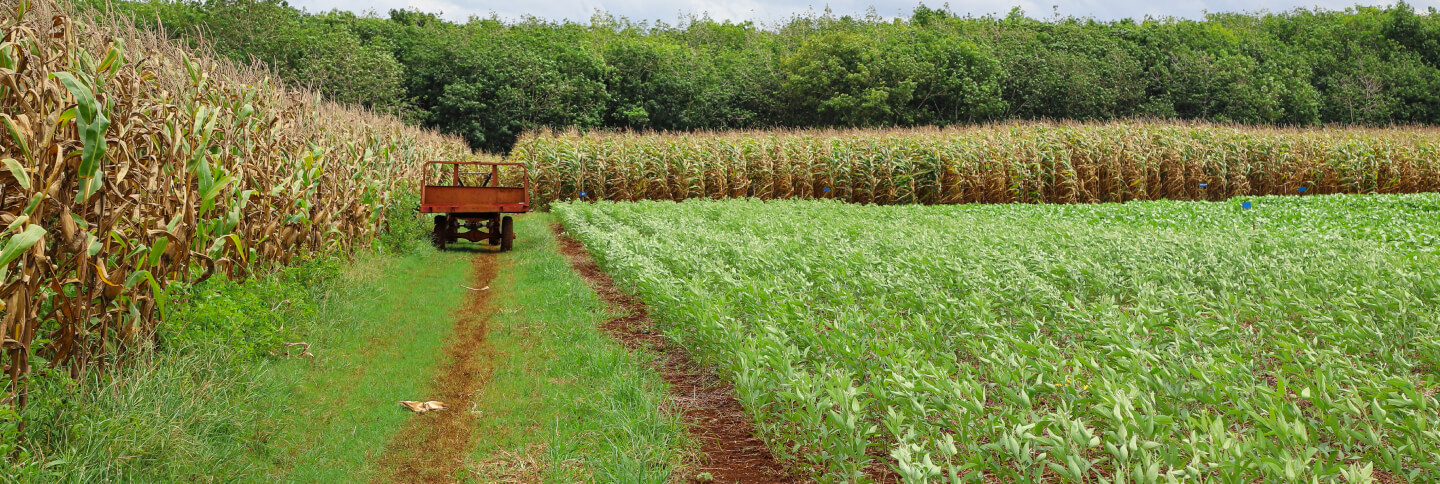Objective
The main objective of MetKasekor is to scale up conservation agriculture practices to smallholder farmers by opening the market for the private sector investments which would enable the bigger market for CA at the same time lead to increased productivity for farmers. To that end, MetKasekor aims to:




MetKasekor Origin
Launch of MetKasekor Model Pilot Phase
From 2018 to 2020, Mekong Inclusive Growth and Innovation Programme (MIGIP) & Conservation Agriculture Service with a Fee (CASF) projects worked to further disseminate and promote the practice of CA in Battambang. The extension was carried out through close engagement with service providers, smallholder farmers in the target locations as well as private companies to promote CA practices. The model proved to be a successful and efficient way to provide extension on CA in Cambodia.
From 2018 to 2020, Mekong Inclusive Growth and Innovation Programme (MIGIP) & Conservation Agriculture Service with a Fee (CASF) projects worked to further disseminate and promote the practice of CA in Battambang. The extension was carried out through close engagement with service providers, smallholder farmers in the target locations as well as private companies to promote CA practices. The model proved to be a successful and efficient way to provide extension on CA in Cambodia.

Private Sector Engagement
Extension plays an important role in promoting technologies to the farmers. This role becomes even more important while introducing new concepts such as regenerative agriculture. However, the public extension system cannot reach out to all the farmers in Cambodia. The private sector understands that the future of agriculture is moving toward regenerative agriculture and sustainable intensification, however, they are hesitant to invest in opening a new market themselves as they do not see a high return on investment. The private sector will only invest in product promotion if the farmers already have adequate knowledge. Therefore, the public sector has to take the lead by developing a common model that brings together all relevant stakeholders to pave the way to transition from conventional farming practices to new regenerative agriculture practices, so that private sector can follow through with their investment and promotion. An agriculture extension services called MetKasekor, with an aim to have public and private sector coordinate in the provision of extension services that emphasizes on sustainable practices so that farmers can gain access to appropriate and relevant agriculture technologies and techniques through public private coordination was thus envisaged and developed.
Extension plays an important role in promoting technologies to the farmers. This role becomes even more important while introducing new concepts such as regenerative agriculture. However, the public extension system cannot reach out to all the farmers in Cambodia. The private sector understands that the future of agriculture is moving toward regenerative agriculture and sustainable intensification, however, they are hesitant to invest in opening a new market themselves as they do not see a high return on investment. The private sector will only invest in product promotion if the farmers already have adequate knowledge. Therefore, the public sector has to take the lead by developing a common model that brings together all relevant stakeholders to pave the way to transition from conventional farming practices to new regenerative agriculture practices, so that private sector can follow through with their investment and promotion. An agriculture extension services called MetKasekor, with an aim to have public and private sector coordinate in the provision of extension services that emphasizes on sustainable practices so that farmers can gain access to appropriate and relevant agriculture technologies and techniques through public private coordination was thus envisaged and developed.

Establishment of Conservation Agriculture Service Center (CASC) and Service Provision
Department of Agriculture Land Resources Management (DARLM) with the supports from CIRAD started Conservation Agriculture Service Center (CASC) and provided machinery services and cover crops to farmers in some area of Battambang province. This effort resulted in early adoption of Conservation Agriculture in the project areas. More farmers showed their interest to invest in CA technologies through service provision and cover crop production.
Department of Agriculture Land Resources Management (DARLM) with the supports from CIRAD started Conservation Agriculture Service Center (CASC) and provided machinery services and cover crops to farmers in some area of Battambang province. This effort resulted in early adoption of Conservation Agriculture in the project areas. More farmers showed their interest to invest in CA technologies through service provision and cover crop production.

Establishment of Conservation Agriculture Research Station
Since 2004, innovative cropping systems and practices based on the principles of Conservation Agriculture (CA) have been designed and tested in different agroecosystems of Cambodia. Results from these scientific studies, showed that CA Production Systems (CAPS) improved soil fertility, reduced labor, conserved water, increased yield and smallholder farmer’s income. However, for a sustainable change to occur, it was crucial for the private sector to adopt the cropping systems
and practices.
Since 2004, innovative cropping systems and practices based on the principles of Conservation Agriculture (CA) have been designed and tested in different agroecosystems of Cambodia. Results from these scientific studies, showed that CA Production Systems (CAPS) improved soil fertility, reduced labor, conserved water, increased yield and smallholder farmer’s income. However, for a sustainable change to occur, it was crucial for the private sector to adopt the cropping systems
and practices.

Target provinces
Preah Vihear & Battambang



